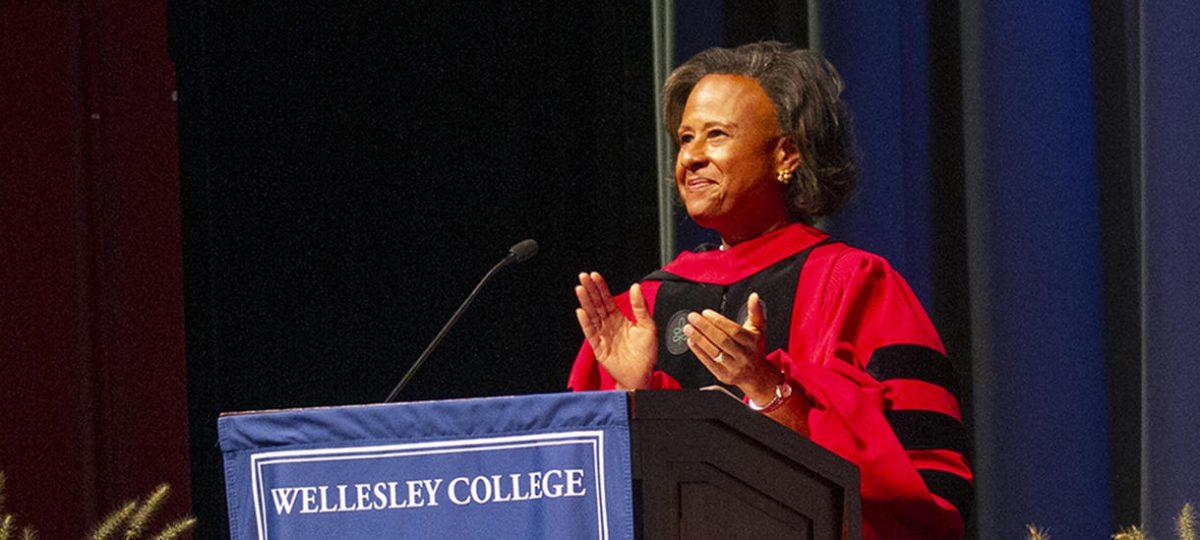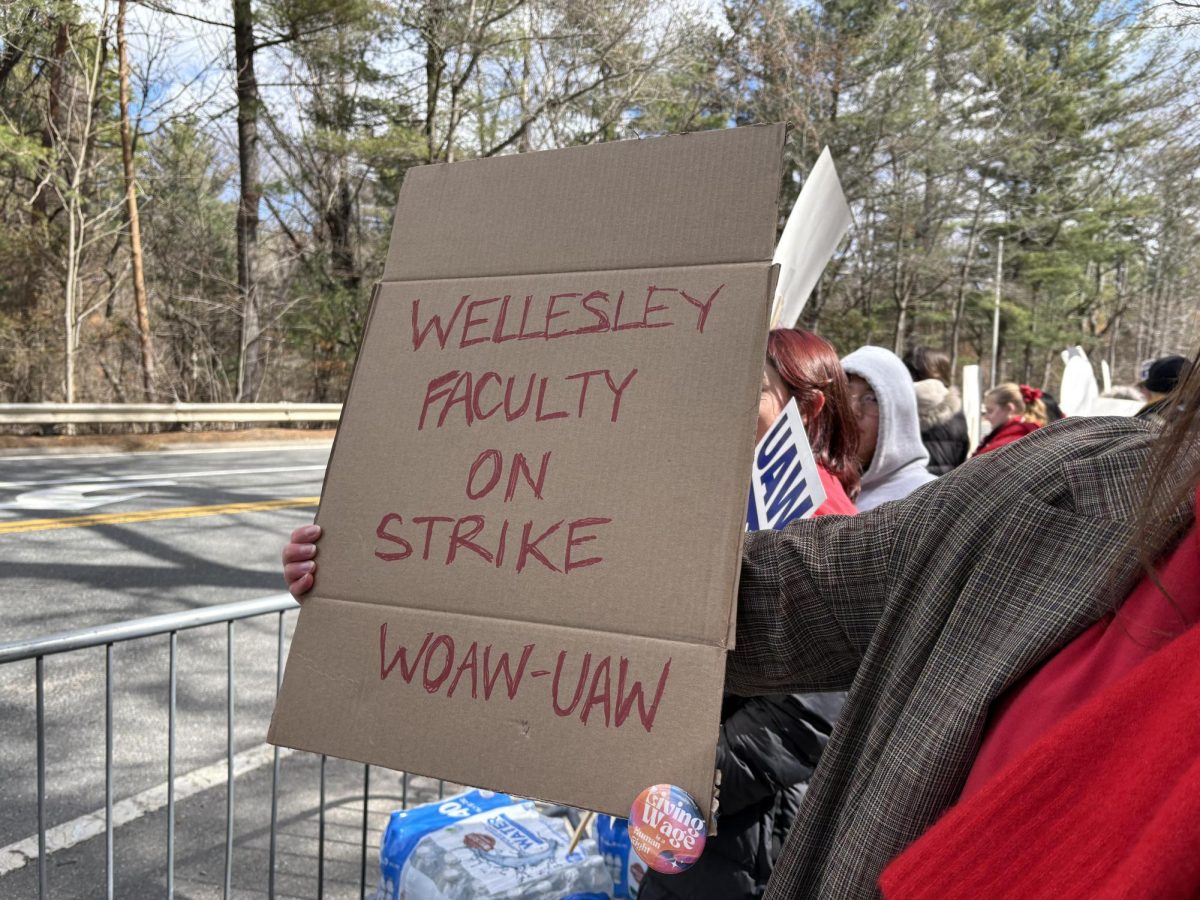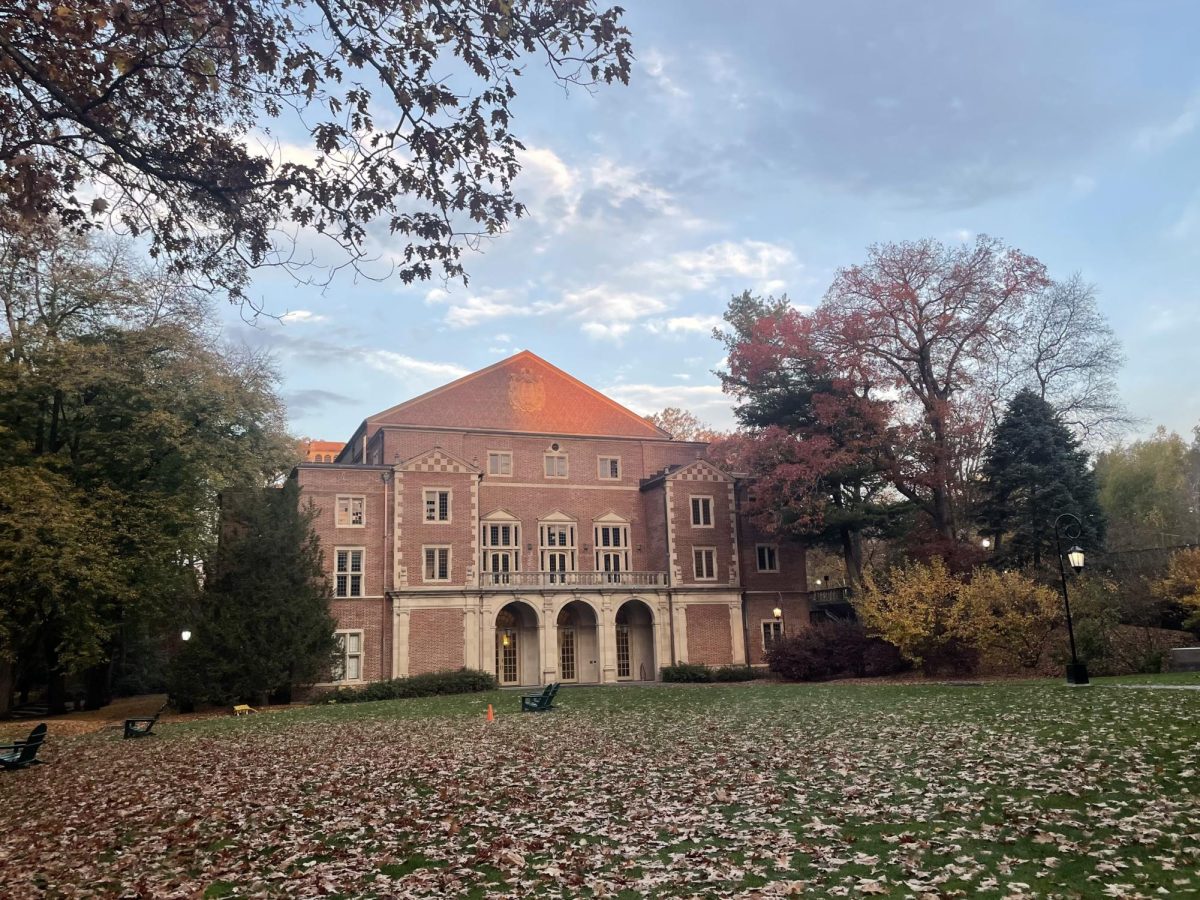On Sept. 6, Wellesley held its annual convocation ceremony in Alumnae Hall. Due to inclement weather, the ceremony was moved from the Hay Outdoor Amphitheater to the Alumnae Hall auditorium.
Like many of Wellesley’s events this year, this was the first “normal” convocation to be held since before the COVID-19 pandemic began. Attendees wore masks, but other restrictions on campus had been lifted.
Four speeches were given at the event, one each by President Paula Johnson, Provost Andy Shennan, College Government President Alexandra Brooks ’23 and Chief Justice Nuzaina Faisal Khan ’23. Khan said that she enjoyed having the opportunity to address the campus community.
“It was kind of like a full circle moment because I remember seeing Nimo [Suleyman ’20] be Chief Justice my first year and being like, ‘Oh my God, Nimo is so cool,’ and talking to her right after convocation,” Khan said.
To write her speech, Khan considered what matters to students and how that related to the Honor Code. Khan and Brooks had written their speeches independently, but when the two sat down to compare them, they discovered that they had both highlighted student activism.
“Courage does not just exist solely in fights for monumental changes from an institution or government, but in daily acts of resistance and understanding,” Brooks said in their speech. “It exists in listening and learning from the people around you and realizing that it is, in fact, very OK to not be the smartest person in the room, especially at a place like Wellesley.”
In contrast to the student speeches, President Johnson’s remarks discussed the importance of Wellesley’s cultural and intellectual diversity. In particular, President Johnson told the story of Virginia Foster Durr, Class of 1925, a white woman from the South who initially refused to sit with a Black student during dinner her sophomore year but went on to become a white ally to the Civil Rights Movement.
This aspect of President Johnson’s speech sparked some criticism from the Wellesley community, as it did not align with some students’ views.
“I think it was kind of a choice of a story of a white woman who has her views challenged, and not about the students of color on campus who were having to deal with that,” Brooks said.
Additionally, President Johnson’s speech also mentioned a statistic that nearly half of American college students said they would not room with someone who voted for the opposite presidential candidate. Marty Martinage ’24 thought that the implications of this statement were problematic.
“I think a college should be striving to make their entire campus a place where students feel safe,” Martinage said. “You shouldn’t have to make your living space be somewhere where you’re questioning at all whether or not your roommate values you as a person.”
However, Martinage also added that speeches from administration are edited by many people and that President Johnson’s remarks may not necessarily be taken as an indication of the president’s personal beliefs.
Brooks believes that there may be additional pressure at the moment for members of administration to take a political stance.
“Wellesley’s always been a very political place, but I think, especially in the last year or two, there’s been a lot of pressure on admin to take stances on things rather than staying behind the guise of neutrality on everything,” Brooks said.






